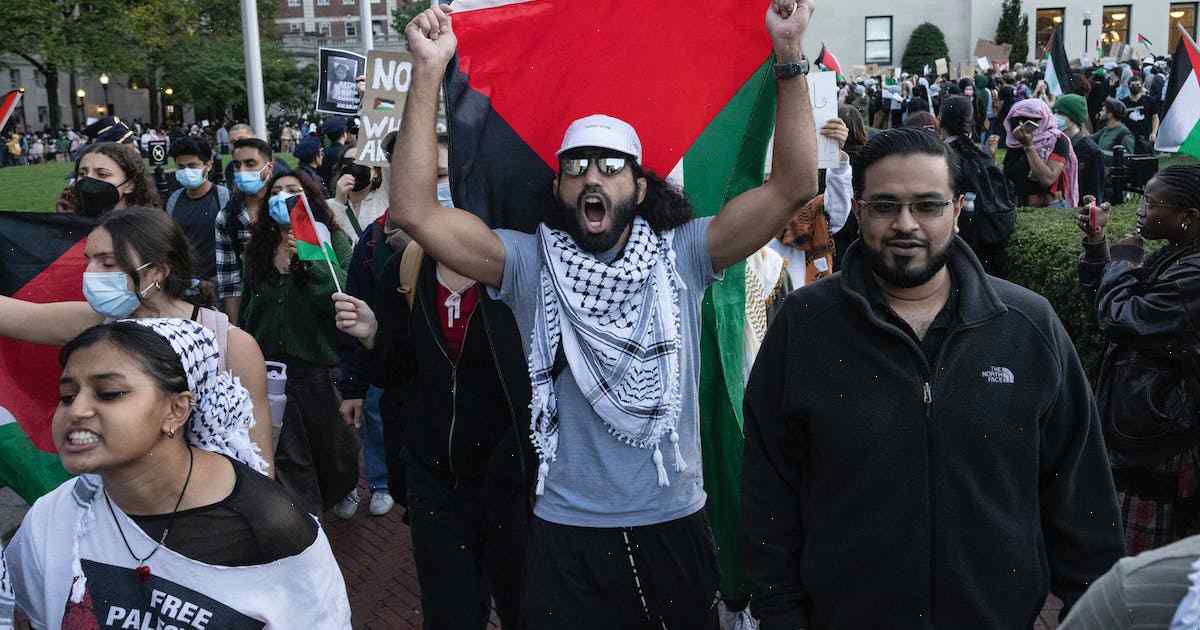As tensions escalate in the Middle East, college campuses across the United States are grappling with their own conflict – a war of words between students supporting Israel and those backing Palestine. Amidst accusations of bias and neglect, both sides claim their voices are being silenced while their concerns go unaddressed.
On university grounds once meant to foster free expression and open discourse, students are increasingly feeling marginalized and disheartened. Protests, sit-ins, and social media campaigns have become commonplace as each side strives to raise awareness about their respective struggles. However, these efforts often result in clashes that leave both parties further divided.
A Jewish student at Harvard University, who wishes to remain anonymous due to fear of backlash, expressed her frustration: “It feels like our voices don’t matter. Every time we try to speak up, we’re met with aggression and hostility.” She recounted a recent incident where a pro-Palestinian group disrupted a lecture by an Israeli scholar, shouting slogans and waving flags. “We just want to have a conversation, but it seems like they’re not interested in listening,” she said.
Pro-Palestinian activists argue that their voices have been historically suppressed and dismissed. “Universities preach diversity and inclusion, yet when it comes to Palestine, they suddenly become silent,” asserted Leila, a student leader at UC Berkeley. “We’re constantly told to ‘respect both sides,’ but how can we respect oppression?” During a recent protest, Leila was confronted by a counter-protester who accused her of spreading hate speech. “I felt belittled and unsafe,” she shared. “Why should I have to justify my people’s right to exist?”
Administrators find themselves caught in the middle, struggling to balance freedom of speech with the need to protect students from harm. Many universities have issued statements denouncing anti-Semitism and Islamophobia, but some critics argue that these declarations ring hollow. “Lip service isn’t enough,” insisted Sarah, a Jewish student at NYU. “When we report incidents, they brush them off as ‘free speech issues.’ They need to take action and hold people accountable.”
Students on both sides agree that education is key to bridging the gap. “Most people here haven’t had exposure to the realities of the conflict,” noted Rami, a Palestinian student at Stanford. “They think it’s just a fight between two groups, but it’s so much deeper than that.” He advocates for mandatory courses on the history of the region, emphasizing that understanding the past could help heal present divisions.
In the absence of institutional support, students are taking matters into their own hands. At Columbia University, a coalition of Jewish, Muslim, and Christian organizations launched a dialogue series aimed at fostering constructive discussion. Participants engage in respectful debate, share personal narratives, and explore potential solutions. “By coming together, we’re showing that we refuse to let our differences tear us apart,” stated Jake, a co-founder of the initiative.
Despite such grassroots efforts, tensions persist. As the conflict rages on, campus life remains fraught with emotion and uncertainty. Students yearn for a future where their voices are heard and valued equally. Until then, the war of words continues, echoing the complex and deeply entrenched nature of the Israeli-Palestinian conflict itself.

